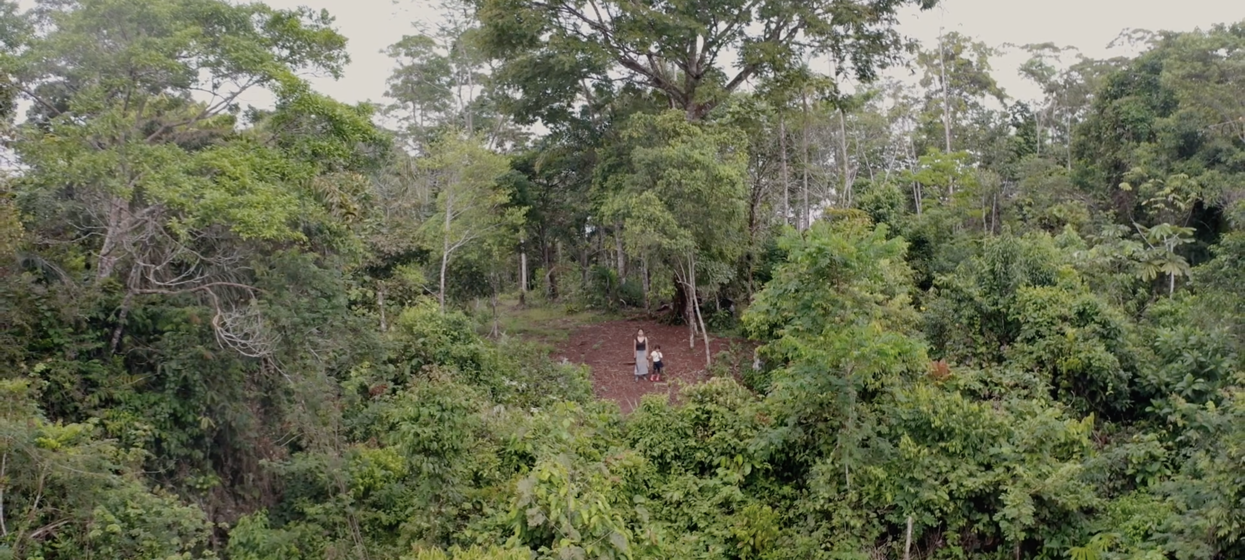Rerouting Media in the Living Forest

Image credit: Eriberto Gualinga
A History & Theory of New Media lecture, presented as part of BCNM's Latinx & Latin American Media Ecologies program and Indigenous Technologies initiative, co-sponsored by the Center for Latin American & Caribbean Studies (CLACS), the Media Studies program, and the Department of Art Practice
with Martina Broner
Assistant Professor, Department of Spanish and Portuguese, Dartmouth College, and Co-Founder of the Amazonia Section of the Latin American Studies Association
This talk tracks the use of a drone in Helena Sarayaku Manta, the 2021 documentary from Sarayaku Kichwa director Eriberto Gualinga that follows an Amazonian activist as she learns about the framework of Kawsak Sacha, or the Living Forest. This call from the Kichwa people of Sarayaku proposes alternative ways of relating to the forest at a time of environmental crisis, and Broner analyzes the film’s drone cinematography in order to argue that it challenges the colonial and neo-colonial desire to survey the Amazon. Broner foreground the film’s attunement to the plants, trees, and river of Sarayaku to suggest that by rerouting practices associated with drones, Helena Sarayaku Manta not only contests the problematic notion that new media guarantee access to new perspectives but also rejects any conception of Sarayaku as a territory apt for extraction—sensorial or otherwise.
About Martina Broner
Martina Broner’s research sits at the intersection of Latin American cinema and media studies and the environmental humanities. Her book manuscript, Forest Formats: Media and Environment in the Amazon, examines new media formats that emerge from entanglements between human and other living entities in the transnational Amazon rainforest. She is assistant professor in the Department of Spanish and Portuguese at Dartmouth.
Indigenous Technologies
Indigenous Technologies is a program of the Berkeley Center for New Media that engages questions of technology and new media in relation to global structures of indigeneity, settler colonialism, and genocide in the 21st century. Our Indigenous Tech events and ongoing conversations with Indigenous scholars and communities aim to critically envision and reimagine what a more just and sustainable technological future can look like. We will highlight Indigenous engagements with robotics, computer science, telecommunications, artificial intelligence, virtual reality, social media, online activism, video games, and more.
Read a full description of the program and find more resources here.
More Info
Click here for the full 2023-24 History and Theory of New Media season.
Click here for the full 2023-24 Latinx & Latin American Media Ecologies season.
Click here for the full 2023-24 Indigenous Technologies season.
Accessibility
BCNM events are free and open to the public. This event will be held in-person, on the UC Berkeley campus. We strive to meet all access and accommodation needs. Please contact info.bcnm [at] berkeley.edu with requests or questions.
BCNM is proud to make conversations with leading scholars, artists, and technologists freely available to the public. Please help us continue this tradition by making a tax-deductible donation today. If you are in the position to support the program, we suggest $5 per event, or $100 a year.
